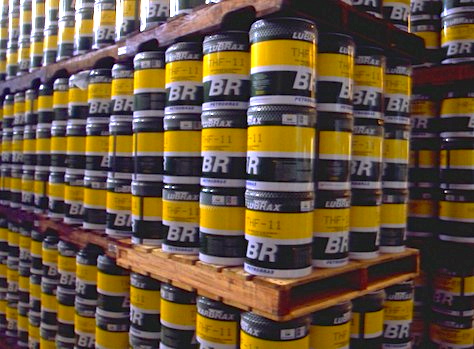 Photo credit to Geraldo Geraldo Falcão.
Photo credit to Geraldo Geraldo Falcão.
The most striking thing the latest sensational scandal involving Brazil’s state oil company is that president Dilma Rousseff’s poll standing has actually increased since the story broke three weeks ago.![]()
If Rousseff, as polls predict, wins the first round presidential vote on October 5, it will be largely because Brazilian voters have shrugged off the latest scandal involving Petrobras and several leading Brazilian figures, along with 12 years of scandals that have now accumulated after three consecutive terms of rule by Rousseff’s Partido dos Trabalhadores (PT, Workers Party).
Former Petrobras executive Paulo Roberto Costa, who was arrested in the spring during an investigation into money laundering, has allegedly testified that dozens of top officials, mostly within Rousseff’s own party, routinely took a 3% kickback on some of the company’s contracts dating back to 2004, when Rousseff, then the minister for energy and mines, technically oversaw Petrobras’s operations.
Among the politicians that Costa singled out was former Pernambuco governor Eduardo Campos, the former presidential candidate who died in a plane crash in August; Henrique Eduardo Alves, the president of the Câmara dos Deputados (Chamber of Deputies), the lower house of the Brazilian congress; and Edison Lobão, the minister for energy and mines, and a member of the centrist Partido do Movimento Democrático Brasileiro (PMDB, Brazilian Democratic Movement Party).
Campos’s alleged involvement may be why the allegations haven’t apparently hurt Rousseff’s ratings against Marina Silva, Campos’s former running mate and now the candidate of the Partido Socialista Brasileiro (PSB, Brazilian Socialist Party). Campos’s party spent much of the past 12 years supporting the governments of both Rousseff and her predecessor, Luiz Inácio Lula da Silva, and Marina Silva, then a member of the Workers Party, served for five years as environmental minister.
But Rousseff’s other major rival, former Minas Gerais governor Aécio Neves, the candidate of the center-right Partido da Social Democracia Brasileira (PSDB, Brazilian Social Democracy Party), has been unable to generate much success by emphasizing the scandal. Neves generally trails both Rousseff and Silva in polls ahead of Sunday’s first-round presidential vote. If, as expected, no candidate wins 50% of the vote, the top two candidates will advance to a runoff on October 26.
But as audacious as the Petrobras scandal could turn out to be, it will take its place under a penumbra of troubling corruption that dates back to Lula da Silva’s first term as president.
The most serious of those is the ‘Mensalão’ scandal (a slang term meaning ‘big monthly payoff), which to light in 2005, involving the payment of up to $12,000 monthly to nearly 40 members of Brazil’s Congresso Nacional (National Congress) in exchange for their support of legislation introduced by the Lula da Silva government. The scandal, which slowly progressed through Brazil’s justice system, has so far resulted in over two dozen convictions and prison sentences.
The Petrobras kickbacks have the potential to be just as wide-ranging and explosive as the Mensalão affair, and Neves is already calling it ‘Mensalão 2.’
Although protests last summer against the Rousseff government initially targeted the rise in urban public transportation costs, they quickly snowballed to encompass a much more wide-ranging list of grievances, including unacceptably high levels of government corruption.
Brazil ranked 72 globally on Transparency International’s 2013 Corruption Perceptions index, which puts it roughly on course with Italy (69) and Greece (80), and higher than every other country in Latin America other than Uruguay (19), Chile (22), Costa Rica (49) and Cuba (63). But while ‘corrupt’ may a relative concept, Brazil is now struggling to attract the kind of foreign investment that it needs to remain Latin America’s largest economy.
No one believes that Rousseff herself has done anything untoward. But leaders known for probity and integrity can lead governments riddled with graft — just ask former Indian prime minister Manmohan Singh.
But there are other reasons why the Petrobras and Mensalão scandals aren’t hurting Rousseff. She was fairly responsive with respect to at least formulating a policy agenda that attempted to address the concerns of Brazil’s widespread protests. Even before that, however, in her first year in office, Rousseff cleaned house and fired several leading PT figures caught in financial scandals, including labor minister Carlos Lupi, defense minister Nelson Jobim and tourism minister Pedro Novais, as well as, embarrassingly, Rousseff’s own chief of staff, Antonio Palocci.
One difficulty is the proliferation of so many political parties, each with their own regional and legislative fiefdoms. Perhaps the most blatant example is the Brazilian Democratic Movement Party, which emerged out of the pro-democracy movement during Brazil’s military dictatorship in the 1960s and the 1970s.
Today, however, the PMDB has no clear ideological bent (other than perpetuating its own hold on power). It supported center-right president Fernando Henrique Cardoso in the 1990s before switching its allegiance to Lula da Silva and Rousseff, and it hasn’t fielded a presidential candidate of its own since 1994.
The PMDB currently holds 76 out of 513 seats in Brazil’s Chamber of Deputies, which makes it a perennial power broker for any Brazilian government. Whatever happens on October 26, either a Rousseff or a Silva administration will likely need the PMDB’s support to govern, and that opens the door to any number of political bargains or more unsavory deals. It’s not difficult to understand how the Mensalão affair came about.